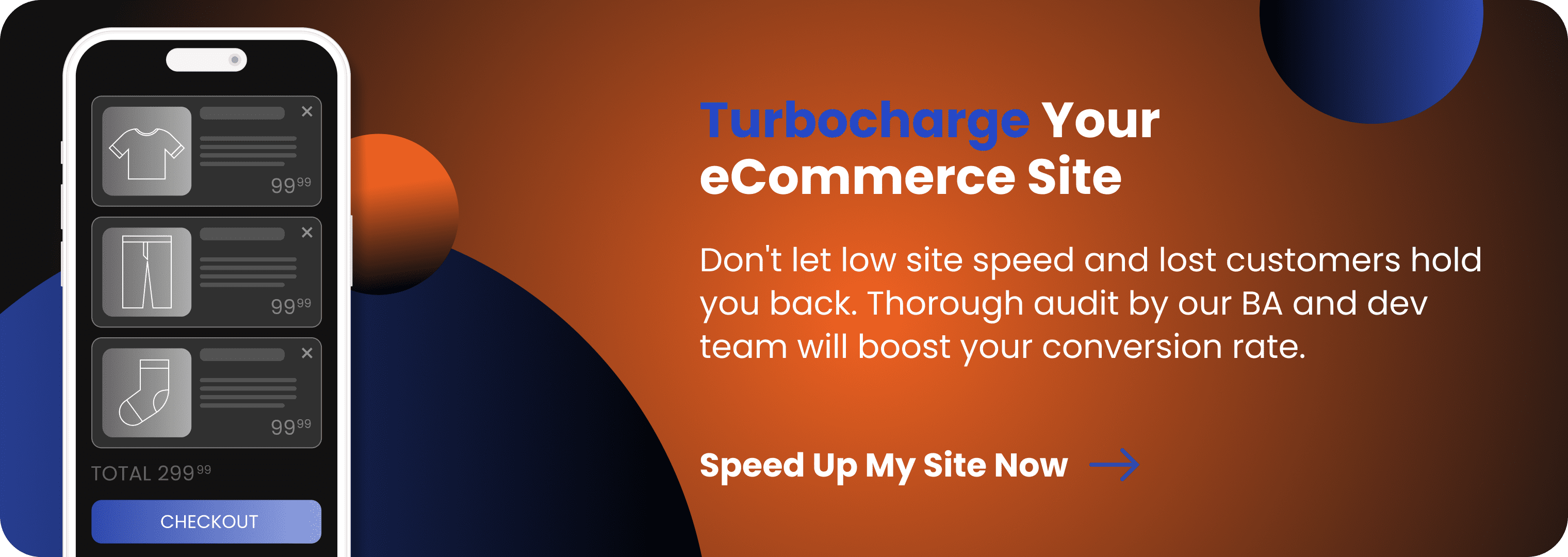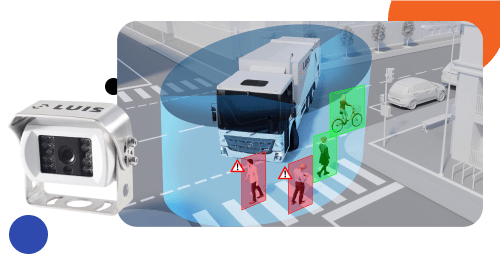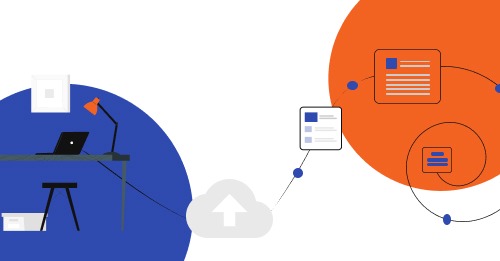A comprehensive and well-documented discovery process is vital to the success of a project. You’ll be a part of an in-depth project discovery and planning process in the early stages of working with an eCommerce company.
This is more than just planning. Instead, it’s a thorough dive inside your company. What exactly does this mean?
For one point, a successful project discovery implies that both teams are confident in the project’s goals, stakeholders, scope of work, and success criteria. After all, technology initiatives like website developments or migrations are investments that may hold significant risks as well as benefits for a corporation—achieving business goals effectively can boost income, cut expenses, and save time.
It is an eCommerce agency’s mission to ensure client projects’ success. From our experience, we know that the best method to ensure success is to first analyze the business goals and technical requirements before initiating implementation.
- What Are a Project’s 5 Phases?
- The Need for Project Planning
- Introduction to the Discovery Phase in eCommerce Project
- What Are eCommerce Business Analysis Services?
- Who Is Involved in Discovery Phase and Business Analysis in eCommerce Site Development?
- The Synergy of Discovery Phase and Business Analysis in eCommerce Project
- When Are a Discovery Phase, Business Analysis & Consulting Services Necessary?
- Key Takeaways
Please read this post to learn about our approach to eCommerce website project planning based on real-world experiences from our 7 years in the industry. Learn how to plan a website project that will endure a long time. With in-depth planning, you gain the following benefits:🔥
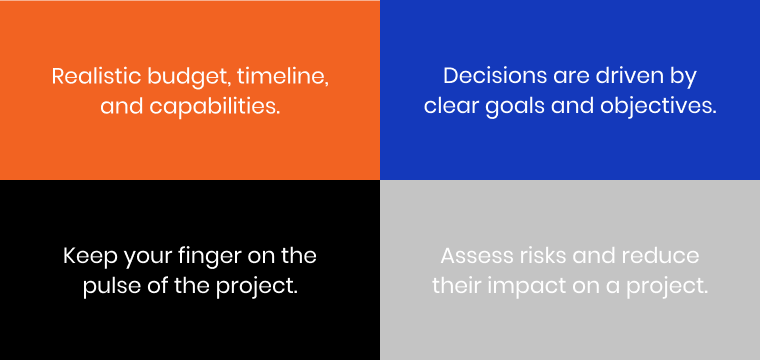

The project life cycle is typically divided into five stages:
- initiation,
- planning,
- execution,
- control,
- and closing.
Since each project phase serves a specific purpose and offers essential data for subsequent product development, none of the project phases may be skipped.
What Are a Project’s 5 Phases?
Tech projects can be challenging to complete, especially if they are big or highly customised.
Most (though not all) of the aforementioned problems can be solved with careful planning of an eCommerce website. This phase is crucial not just for producing the necessary project documentation but also for the following reasons:
- An ecommerce project plan enables you to establish and maintain reasonable expectations for your resources, timeframe, and timeliness.
- It’s difficult to exceed the project scope unless you’re going to add any relevant functionality because clear goals and objectives drive your project decisions.
- It allows you to keep an eye on the project’s progress and determine whether the activities are being finished on schedule and in the correct order to meet the target release date.
- You can evaluate risks and lessen their influence on your project by planning.
- The plan evaluates how effectively you’ve accomplished your objectives and what extra needs to be done to add value to your company during the project management process.
To avoid project failure, the discovery phase should precede the project start and flow into planning as the main project stage. Before beginning the project, IT providers must conduct a discovery phase and a business analysis services to avoid wasting either the client’s or their resources.
The Need for Project Planning
While working with the new client, we scrutinise! Yes, you got that right.
The “Discovery Phase” is the procedure we use to compile as much data and information as possible to match the client’s company style, concept, and objectives. Four easy steps may be taken to complete the Discovery phase:
- Interview: Our team performs a series of interviews with them to understand better the client’s project team’s expectations for the eShop, as well as to assess the client’s competitors, target market, and current infrastructure, and to gather project requirements.
- Research: We involve key employees in our research, including the project manager, technical team leads, and the UI/UX design team. Our experts research the target market, competitors, norms, and trends in the industry, client brands specifically, current technology, and third-party platforms.
- Workshop: Meetings/workshops with the client and their project teams will be held as soon as the project requirements and findings have been outlined to conduct a complete review and ensure everyone is on the same page.
- Deliverables: The discovery, documentation, and reports outcomes will be presented during the kick-off meeting. Our team must successfully convey the findings of our study, lay out the suggested course of action, and provide the customer with a step-by-step roadmap for system development.
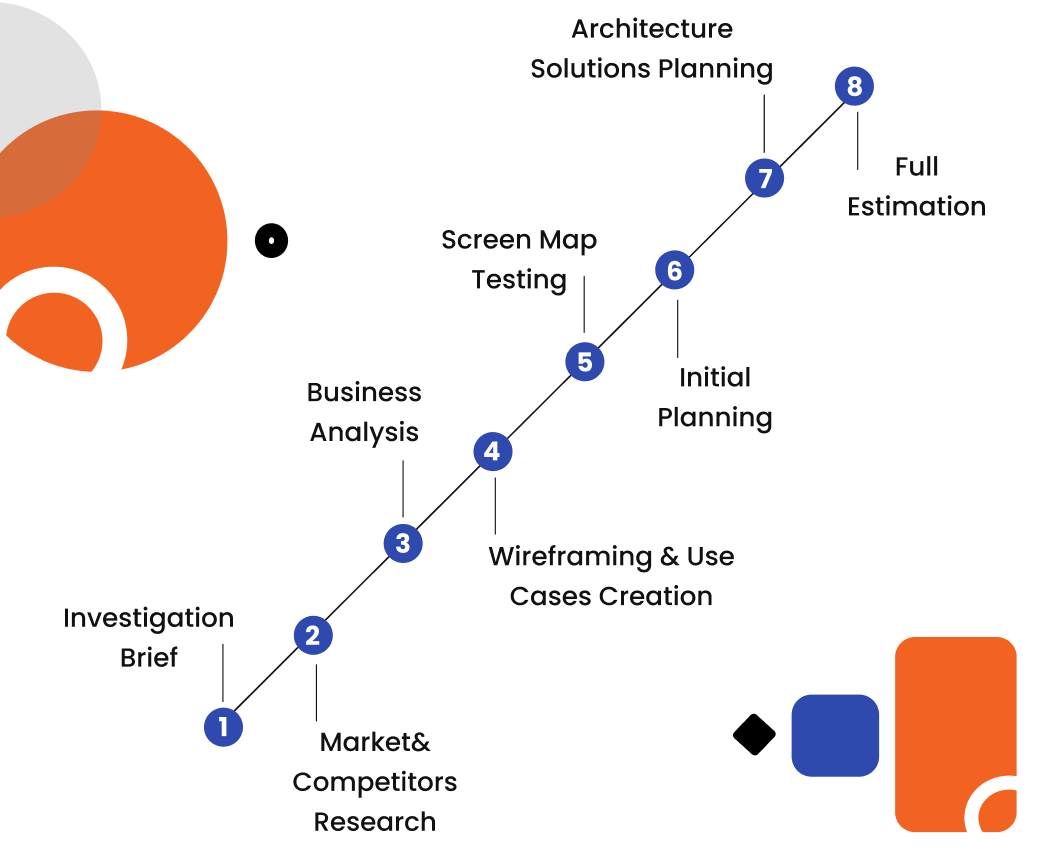
Introduction to the Discovery Phase in eCommerce Project
Business analysis (BA) is a study field that looks for ways to address company issues and discover business needs.
Business analysts are experts who look into the requirements and objectives of customers and businesses, spot problems and offer solutions. Process simplification, organisational reforms, and the adoption or creation of specific software are some of the answers. Business analysts are also in charge of creating detailed software requirements in the latter two scenarios.
What Are eCommerce Business Analysis Services?
- Information and requirement gathering
Why create a solution at all if it does not address the demands of consumers and businesses? Again, why create software that is not industry-specific and only partially satisfies the customer’s needs?
- Developing Specifications
All the criteria you created in the previous stage are contained in this formal document, also known as the functional requirements specification. Stakeholders on the client side should approve the specification before presenting it to developers.
- Informing developers of requirements
To make sure they are entirely aware of the needs of the product, business analysts should work together with other project participants.
Therefore, the primary responsibility of eCommerce business analysts in the software development process is to close the communication gap between clients, end users, and software developers through data collection and analysis, rival and comparable solution research, requirement specification, and documentation.
Dive Deeper Into the Key Responsibilities of eCommerce Business Analysts in Website Development
A project manager, business analyst, designer, technical expert, and client make up the typical team members.
- As mentioned above, an eCommerce business analyst is in charge of determining, analysing, and correcting requirements, establishing system logic, and creating connections. BA creates a structure of functional and non-functional needs from corporate goals.
- An eCommerce designer investigates which design choices are appropriate for a specific product. To deliver a better user experience, the designer is given time to precisely analyse “who are we creating for?” and “how should we design things?”
- A project manager is the main person in charge of the project and coordinating the workgroup, client communication and weekly reporting, resource booking, and timely and appropriate delivery of artefacts to the customer. He occasionally incorporates communication channels like Slack, IVRs, email, etc.
- Technical experts examine the artefacts from the discovery phase to ensure the business logic built is technically possible and provides the optimal architectural solution.
Who Is Involved in Discovery Phase and Business Analysis in eCommerce Site Development?
Understanding the wants and requirements of the end user is aided by the product discovery process. The system requirements specification results from the procedure’s technical portion (SRS). The information required for product development is included in this document, including primary and auxiliary features, quantifiable deliverables, and more.
During the discovery phase and business analysis, the project manager, business analyst, and account manager take the lead. Team leads, developers, or designers can occasionally join the efforts. They offer assistance with SRS, wireframe prototypes, or scope evaluation.
Given the time and financial commitments, the discovery phase and eCommerce BA results are essential. When it’s finished, you’ll get the following:
- System requirements specification. The project’s objectives, features, proposed technology stack, and architecture overview are all extensively described. Before approving it, thoroughly review it and suggest any necessary modifications.
- A rough UX prototype. You will be given a basic illustration of the digital interface and its critical components before developers begin working on your project. It offers an explicit knowledge of how the project process will run and feel after it is complete when combined with an SRS.
- eShop development schedule and budget. You will also receive a proposed squad lineup, a precise development schedule, and a price quote. Your business objectives will be ruined by the figures based on the discovery phase, user experience prototype, and constant SRS over time.
The development process’s direction and aim are defined through analysis, research, and communication. They are required to recognise and address any hazards and dangers.
The Synergy of Discovery Phase and Business Analysis in eCommerce Project
If any of the following apply to you, you may require a discovery phase and business analysis for your eCommerce project:
- Which technology would be ideal for my project?
- My team still needs to define the technical and business requirements for my project.
- A budget still needs to be set for my project.
- I have yet to create user personas or conduct user research.
- Although we are aware of an issue, we are unaware of its origin.
- To assist me in reaching my company objectives, I need an expert’s unbiased viewpoint.
- Our internal stakeholders are unable to reach an agreement.
- I wrote an RFP without first consulting a professional consultant.
- I need fixed pricing and an exact timetable estimate for my project to provide cost certainty.
- To guarantee that the project is successful, I want to limit risk.
If any of these descriptions fit you, get in touch with us to discuss project discovery and planning. We are prepared to assist you as you travel the digital world.
When Are a Discovery Phase, Business Analysis & Consulting Services Necessary?
When developing an eCommerce website, the Discovery Phase and Business Analysis may first add to the project’s complexity and expense. But at this point, we are moving some of the analytics work from the development team to the Discovery Phase. Each team member is aware of their responsibilities and converses with the project’s goals, contents, and due dates.
Our staff is prepared to assist in developing your product and carry out an excellent, thorough Discovery Phase, eCommerce Business Analysis & Consulting services since they have an excellent grasp of advanced technologies and practical skills in several business fields. Get in touch with us!

